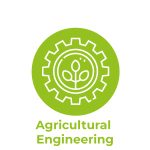Agricultural Engineering Posters
A methodology to determine the proportion of furrow deformation in newly harvested sugarcane fields
Last Updated: julio 6, 2025Identifying and correcting deformed furrows are critical for optimizing water management and machinery performance in sugarcane cultivation, particularly in regions prone to flooding, such as the Cauca River Valley. Deformed furrows disrupt drainage, creating flood-prone areas that lead to crop losses and operational challenges, including potential damage to the basecutter of harvesters.
AI management with the NAX tool for the optimization of sucrose, biomass, soil, and costs at Ingenio Pichichi S.A.
Last Updated: julio 6, 2025This study aimed to improve the efficiency of sugarcane harvesting at Ingenio Pichichí, maximizing the production of biomass and sucrose while optimizing operational costs and minimizing risks associated with climate and soil variables. The NAX platform was used with satellite imagery and generative algorithms to optimally select harvest plots based on the available biomass and sucrose content.
Correcting furrow shape in sugarcane
Last Updated: junio 19, 2025In Estrella Sugar Mill, Panama, due to excessive damage caused to the cane harvester and the cane left in the field during the harvest process, it was decided to improve the conditions of the furrow in all its sugarcane fields. Furrow shape was improved after the harvest by a double subsoiling and disc cultivation of soil.
Good practices in mechanical harvesting: modified discs and base cutting blades
Last Updated: julio 6, 2025This study evaluated the performance of carrier discs with modified angles and cutting blades with different edge configurations to enhance base-cutting practices in the mechanical sugarcane harvesting. In the first phase, discs with angles of 0°, 15°, and 30° were analyzed.
Increasing sugarcane productivity at Hacienda Génova through the implementation of an efficient irrigation system
Last Updated: junio 19, 2025Génova is a hacienda located in the municipality of Cerrito, Valle del Cauca, Colombia, with a sugarcane cultivation area of 645 ha. The estate's environment is semi-arid, with soils of low moisture content and an average annual precipitation of 750 to 800 mm, requiring supplemental irrigation
Innovations for weed control in organic sugarcane
Last Updated: julio 6, 2025We developed a solution for weed control in organic sugarcane cultivation. High costs, labor shortages, and climatic conditions negatively affect the timely execution of agricultural practices. After identifying the negative impact of weeds on sugarcane production (40% decrease) if control is not applied, we sought solutions suited to our soil and climate conditions.
Mitigating soil compaction during sugarcane ratoons by managing the subsoil under residue retention
Last Updated: junio 19, 2025In Colombia, after sugarcane harvests, chisel-type subsoiling implements are used to mitigate soil compaction. Usually, harvest residues are cleared from two interrows that will be decompacted and moved to the adjacent third interrowrrow (2×1 arrangement). However, performing chisel subsoiling operations while preserving residues in all interrows is likely to improve the relationship between the machine-soil-plant system and stimulates sugarcane production.
Site-specific precision agriculture to improve production in sugarcane
Last Updated: junio 19, 2025At La Estrella sugar mill in Panama, site-specific precision agriculture is being used on some sugarcane blocks where production had declined rapidly by the second-ratoon harvest. The study area is about 150 ha at three sites within the plantation.
Sucrose losses from the field to the mill in a sugar mill in southwestern Colombia
Last Updated: junio 19, 2025This study was carried out during the year 2024, covering all climatic scenarios encountered under normal milling conditions. To identify sucrose losses (Sucrose%Cane), three different scenarios were evaluated: Field, Core Sampler, and Cane Yards, The study involved over 10 sugarcane varieties, with the four most significant varieties being CC05-430, CC01-1940, CC85-92, and CC11-595.
Using a portable MicroNIR as a key tool for the sugarcane industry
Last Updated: junio 19, 2025Sugarcane companies face challenges in optimizing their harvest timing, as a critical date exists where harvesting achieves maximum efficiency. Missing this date by even a few days can lead to substantial revenue losses. Traditional wet chemistry analyses of limited stalk samples lack representativeness, leading to suboptimal decisions. Industry 4.0T promotes the integration of advanced technologies such as NIR, internet connectivity (IoT) and the processing of data in cloud base type solutions to transform the way sugarcane industry operates, evaluates and produce sugar.
